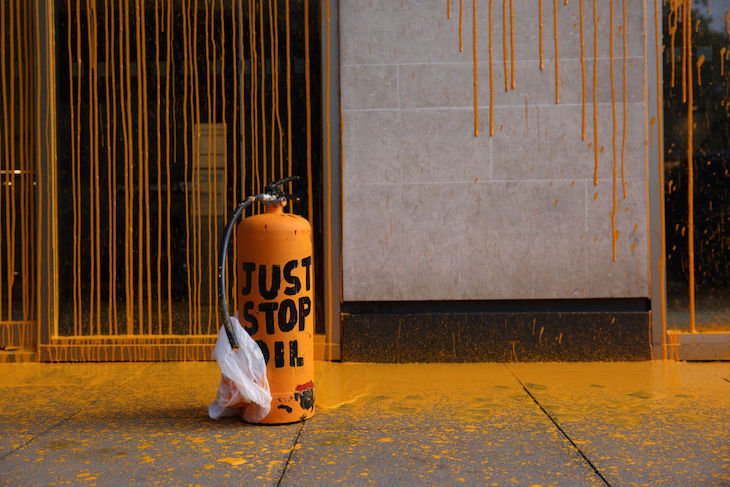Student activist Edred Whittingham baffled the snooker world last week by jumping onto the green baize at the Snooker World Championships in Sheffield and detonating a package of orange chalk across the table in a bid to end global warming. A few days earlier, the German government had baffled scientists by shutting down their three remaining nuclear power plants; this despite a despairing open letter from scientists, including two Nobel Laureates, explaining the plants’ potential to reduce Germany’s carbon footprint by up to 30 million tons of C02 per year.
As these stories show, there is no shortage of good intentions to save the planet, but there remains scope for improvement in how we turn these good intentions into practical results.
One attempt to address this is Unesco’s programme of ‘Education for Sustainable Development’ (ESD) which seeks to ‘reorient education to address sustainable development’, an objective enshrined in the UN’s Agenda 21. This has been adopted enthusiastically by UK educational quango the Quality Assurance Association for Higher Education (QAA) who now urge all UK university degree programmes to incorporate ESD. But is ESD the answer to our climate woes, or might it be another case of misdirected good intentions?
Inane virtue signalling has no more place in our universities than it has at the Crucible
One thing is certain: ESD is a radically ambitious programme. ESD abandons the traditional approach of higher education where academics develop modules and courses based on their own academic expertise. It replaces this with a top-down model where the UN sets the agenda and enforces it through national education bureaucracies.
The goals of ESD are also radical. As the name ‘Education for Sustainable Development’ indicates, it seeks to challenge the very purpose of education. It rejects traditional educational objectives, such as personal development and understanding, in favour of promoting the UN’s vision of sustainable development. Aspects of education that do not contribute to the UN’s goals can be omitted:
‘Deciding what to leave out – what does not contribute to sustainability or is obsolete – is an integral part of the reorienting process.’
Storytelling, for instance, becomes a means to ‘better transmit sustainable development information’; music lessons are an opportunity to write lyrics about water conservation. In a climate emergency, there simply isn’t time for fripperies such as art any more than there is time to watch the snooker. Apparently, the situation is such that we must no longer merely educate; we must prompt political action: ‘Empowering and mobilising young people of all genders… is a central part of ESD implementation’.
This radical approach to education is not the invention of Unesco. ESD is grounded in critical pedagogy, an approach pioneered by Paolo Freire in his book The Pedagogy of the Oppressed. Indeed, since ESD does not merely seek to address environmental issues but social justice more broadly, ESD might be more accurately viewed as a rebranding of critical pedagogy.
Freire’s theory is post-Marxist and poststructuralist. He has a Marxist understanding of power and a postmodernist scepticism towards claims of objectivity. As a result, Freire argues that: ‘The educator has the duty of not being neutral,’ and that ‘Washing one’s hands of the conflict between the powerful and the powerless means to side with the powerful, not to be neutral.’
Through this unconvincing sleight of hand, Freire dismisses the principal concern with ESD: political bias. Freire is, however, more convincing on this point than the UK’s university quality watchdog, the QAA, as they advocate ESD without ever mentioning its potential for bias at all.
Unesco’s materials, at least, are not quite as gung-ho about political neutrality as Freire. They accept that ‘some’ will ‘distort ESD and turn it into indoctrination,’ but they argue that if one engages in ESD in a genuine spirit there should be no risk of this. This seems hopelessly naïve when one considers they plan to embed political content throughout the curriculum, including subjects as diverse as maths and music where the teachers have no relevant expertise.
In practice, educators who embrace critical pedagogy have perfectly predictable biases which they are happy to impose upon their students. Henry Giroux, another founding figure in critical pedagogy, for example sees its role as being ‘challenging neoliberalism’s new world order.’ Because of his tribal understanding of politics, he rather lazily lumps nuclear energy into the pile labelled neoliberalism, and that is presumably sufficient reason to oppose it. Marilyn Frankenstein, founder of ‘critical mathematics’, explains how teaching schoolchildren about percentages can be used as an opportunity to raise concerns about the levels of federal subsidy to the nuclear power industry.
It is certainly true that many disciplines have a role to play in averting climate change, not least my own discipline of mathematics. Yet, without the benefit of critical pedagogy, the mathematical skills we have traditionally taught are already heavily employed in climate modelling, power generation and the development of energy and carbon markets. But traditional scientific education has more to contribute than just dry facts and techniques, it also inculcates values. These scientific values include rigour, a respect for evidence and a willingness to accept when one is wrong. Underpinning all of this is the dispassion and neutrality that Freire despises. This neutrality is central to the credibility of climate science, and as such it is vital that we do not allow it to be sacrificed.
It is understandable that university leaders want to do something visible to combat climate change: Edred Whittingham’s palpable feelings of frustration and despair are the one readily comprehensible feature of his snooker protest. But we should surely carefully weigh the obvious risk of indoctrination before we decide to embark upon a radical educational revolution. Inane virtue signalling has no more place in our universities than it has at the Crucible.






Comments